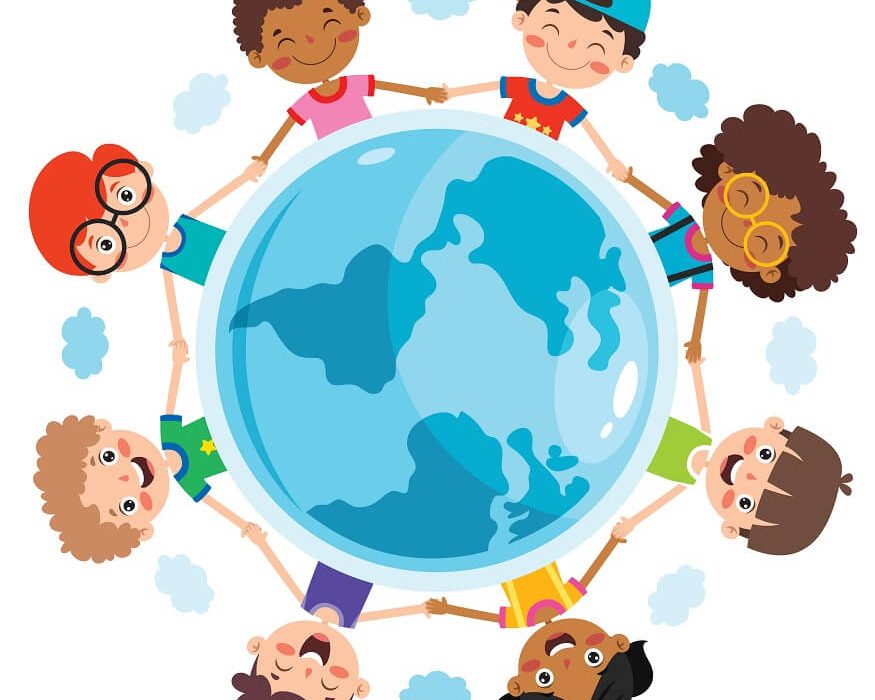The Role of Ethics Education in Building Responsible Global Citizens

In an increasingly interconnected world, the need for individuals who can navigate ethical dilemmas and contribute positively to global society has never been more important. As global citizens, individuals must understand the ethical implications of their actions, not just within their local communities but also on a global scale. Ethics education, therefore, plays a pivotal role in shaping responsible citizens who can make informed, moral decisions that support the well-being of all people, regardless of nationality, culture, or background. By fostering critical thinking, empathy, and moral responsibility, ethics education empowers individuals to act with integrity and fairness in an ever-changing world.
What is Ethics Education?
Ethics education involves the teaching and learning of moral principles and ethical decision-making skills. It encourages individuals to think critically about right and wrong, guiding them to make decisions that are just, fair, and beneficial to society. Ethics education often covers topics such as integrity, justice, fairness, empathy, and social responsibility. While these lessons can be learned in various settings—from schools and universities to workplaces and community organizations—formal ethics education typically provides students with structured frameworks to understand and apply ethical principles in real-world situations.
Fostering Empathy and Understanding
One of the most significant aspects of ethics education is its ability to foster empathy and understanding across diverse cultures and societies. Global citizenship requires individuals to understand and appreciate the perspectives of others, especially in an increasingly multicultural world. Through ethics education, students learn to consider the needs and experiences of people from different backgrounds, helping them to build more compassionate and inclusive societies.
- Promoting Cultural Awareness: Ethics education often includes discussions of cultural differences, helping students understand the values, traditions, and beliefs that shape different communities. By recognizing these differences, students can develop a deeper respect for others, which is essential for building harmonious global relationships.
- Encouraging Perspective-Taking: Teaching students to consider various viewpoints allows them to make more informed and considerate decisions, particularly in international contexts where cultural misunderstandings or conflicting values can lead to tension. Ethics education provides a foundation for empathy, teaching individuals to appreciate the humanity of others and act with kindness and respect.
Ethics Education and Global Challenges
As global issues such as climate change, economic inequality, and human rights violations continue to affect societies around the world, ethics education has an important role to play in preparing students to tackle these challenges. By equipping individuals with the ethical reasoning skills necessary to address global problems, ethics education encourages responsible decision-making that considers the broader impact on humanity and the planet.
- Addressing Global Problems with Integrity: Ethical frameworks help individuals make decisions that prioritize the well-being of people and the planet. For instance, a student who learns about the ethical implications of environmental degradation will be more likely to take action toward sustainability, understanding that their choices contribute to a larger global effort.
- Fostering Social Responsibility: In addition to environmental concerns, ethics education can instill a sense of social responsibility, encouraging students to act in ways that promote equality, justice, and human rights. By learning about issues such as poverty, discrimination, and access to education, students are empowered to advocate for positive social change.
Developing Critical Thinking and Moral Reasoning
Ethics education is not just about learning moral values but also about developing critical thinking and moral reasoning skills. Students are encouraged to engage in thoughtful discussions about complex ethical issues and analyze the potential consequences of different actions. This process helps them develop a strong sense of moral judgment that can guide their decisions throughout their lives.
- Critical Reflection: Ethics education challenges students to reflect on their own values, biases, and assumptions. By questioning their beliefs and examining them through an ethical lens, students are better equipped to make thoughtful and principled decisions in both personal and professional contexts.
- Ethical Dilemmas and Decision-Making: Through case studies and role-playing exercises, students can explore real-world ethical dilemmas and practice making decisions that align with their values. These exercises help students develop the ability to navigate the complexities of moral decision-making in uncertain and diverse environments.
Building Ethical Leadership for the Future
Ethics education is a crucial foundation for cultivating ethical leadership. In a world where leaders face constant challenges and moral dilemmas, ethical decision-making is essential for guiding others with integrity and fairness. Students who undergo ethics education are better prepared to take on leadership roles that prioritize the well-being of all people and promote justice.
- Integrity in Leadership: Ethics education teaches future leaders the importance of acting with integrity, transparency, and accountability. By emphasizing the value of honesty and ethical conduct, ethics education helps leaders understand their responsibility to uphold moral standards and earn the trust of their communities.
- Advocating for Justice and Equality: Ethical leaders are often at the forefront of social justice movements, advocating for policies and practices that promote fairness and equal rights for all. Ethics education encourages students to consider the ethical dimensions of leadership and to take a stand against injustice, whether at the local, national, or global level.
The Importance of Ethics Education Across Disciplines
While ethics education is often associated with philosophy or social sciences, it is important to note that ethics should be integrated across all fields of study. Whether students are studying medicine, law, business, or the sciences, ethical considerations play a central role in guiding professional practice. By incorporating ethics into a wide range of academic disciplines, students gain a comprehensive understanding of how to apply ethical principles to their chosen careers and contribute to society in responsible and meaningful ways.
- Ethics in Professional Practice: In fields such as healthcare, law, and business, ethical dilemmas often arise that require careful thought and judgment. Teaching ethics within these fields ensures that professionals make decisions that uphold the highest standards of integrity and respect for others.
- Cross-Disciplinary Ethical Collaboration: Ethics education fosters interdisciplinary collaboration by encouraging students from different fields to engage in discussions about ethical challenges. This collaborative approach helps create a holistic understanding of how ethical issues intersect across different sectors of society.
Conclusion
In a globalized world, the need for responsible, ethical global citizens has never been more urgent. Ethics education plays a vital role in preparing individuals to navigate complex moral dilemmas, foster empathy and understanding, and contribute positively to global society. By promoting critical thinking, moral reasoning, and social responsibility, ethics education helps build the foundation for a more just and compassionate world. As the challenges we face continue to evolve, ethics education will remain essential in equipping future generations with the tools they need to become ethical leaders and responsible global citizens.










